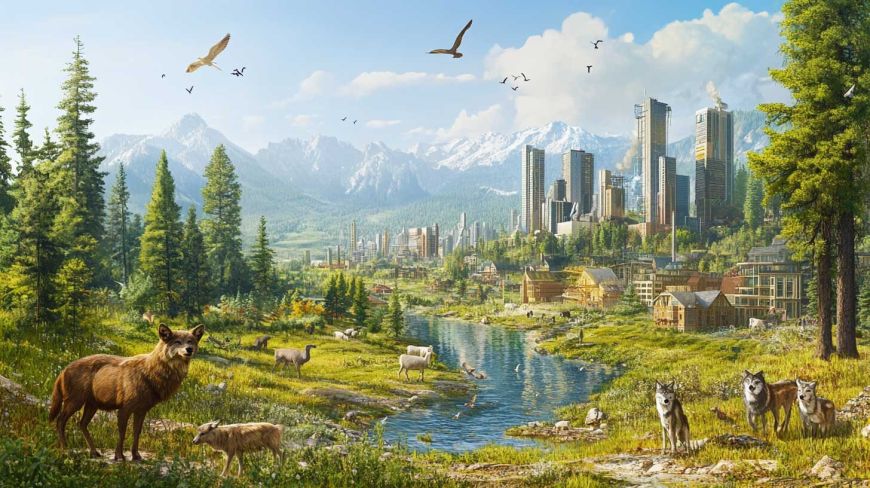
 back to all news
back to all news
Human-wildlife overlap expected to increase across more than half of land on Earth by 2070

Contact: [email protected]
According to a new University of Michigan School for Environment and Sustainability (SEAS) led study, as the human population grows, it's expected that more than half of Earth's land will experience an increasing overlap between humans and animals by 2070. This overlap could lead to increased conflict between people and animals, which is why understanding where overlaps could occur will be crucial for urban planners, conservationists and countries that have pledged conservation commitments.
“We found that the overlap between populations of humans and wildlife will increase across about 57% of the global lands, but it will decrease across only about 12% of the global lands. We also found that agricultural and forest areas will experience substantial increases of overlap in the future,” said Deqiang Ma, lead author of the study and a postdoctoral research fellow at the U-M Institute for Global Change Biology in SEAS.
Neil Carter, associate professor at SEAS, is the principal investigator of the study, and Brian Weeks, assistant professor at SEAS, is a co-author.

